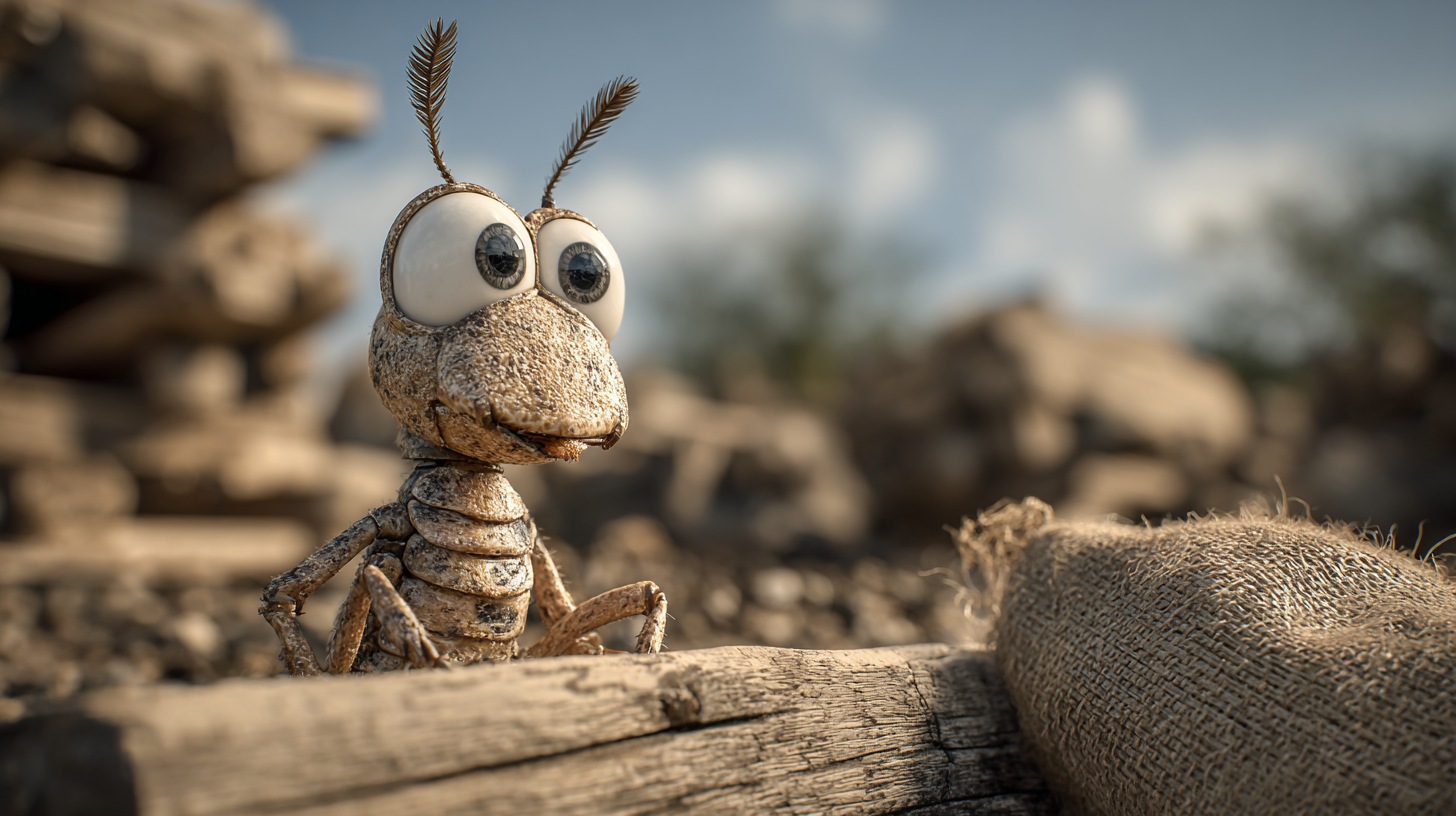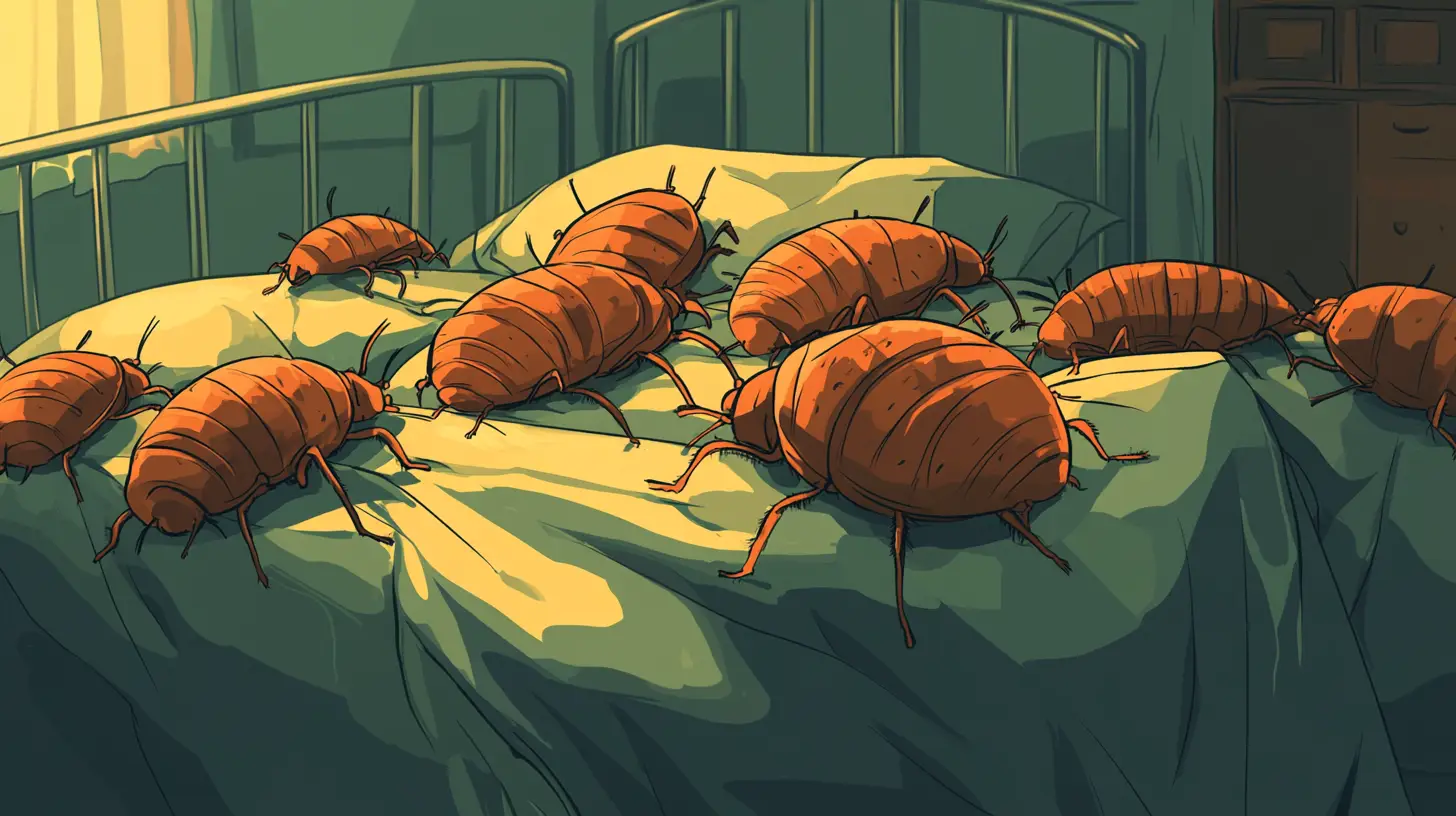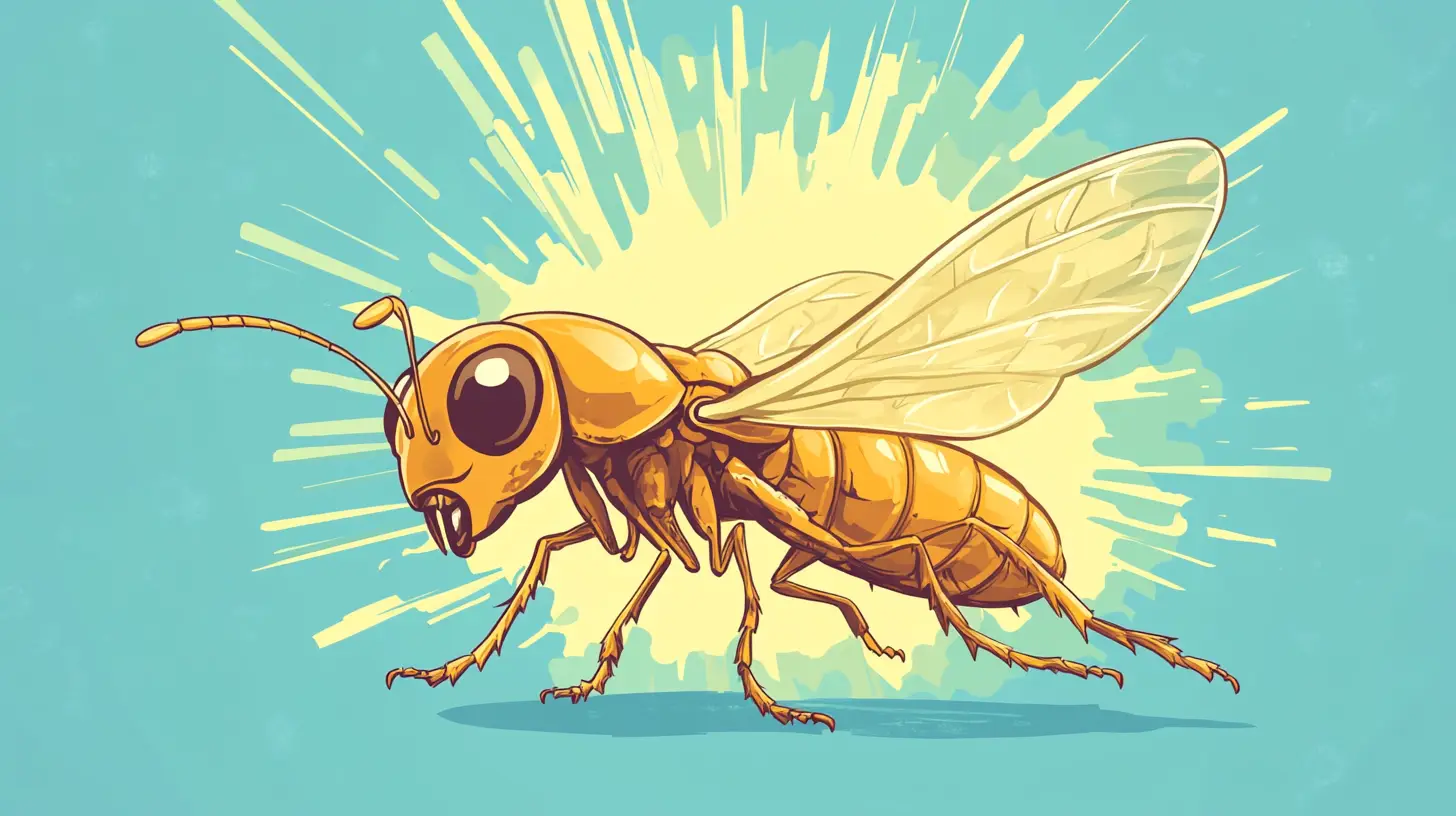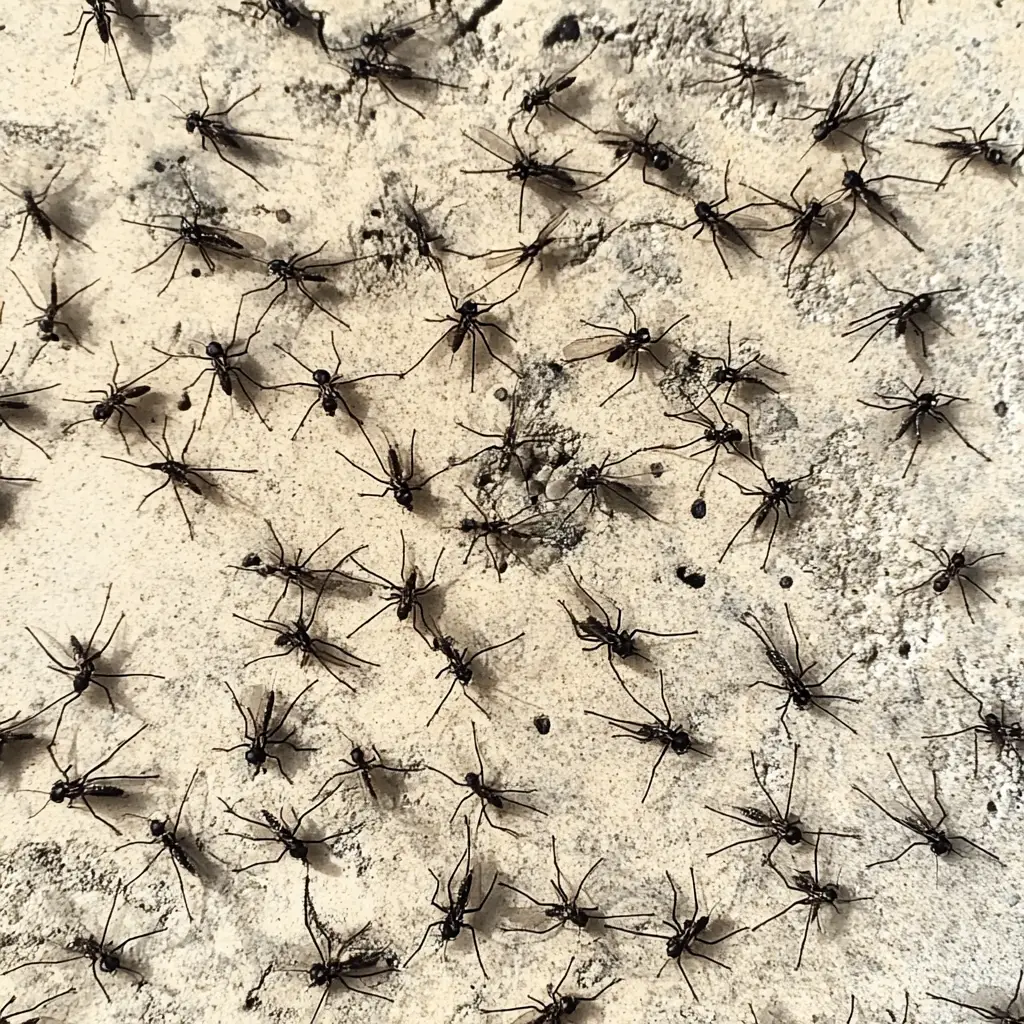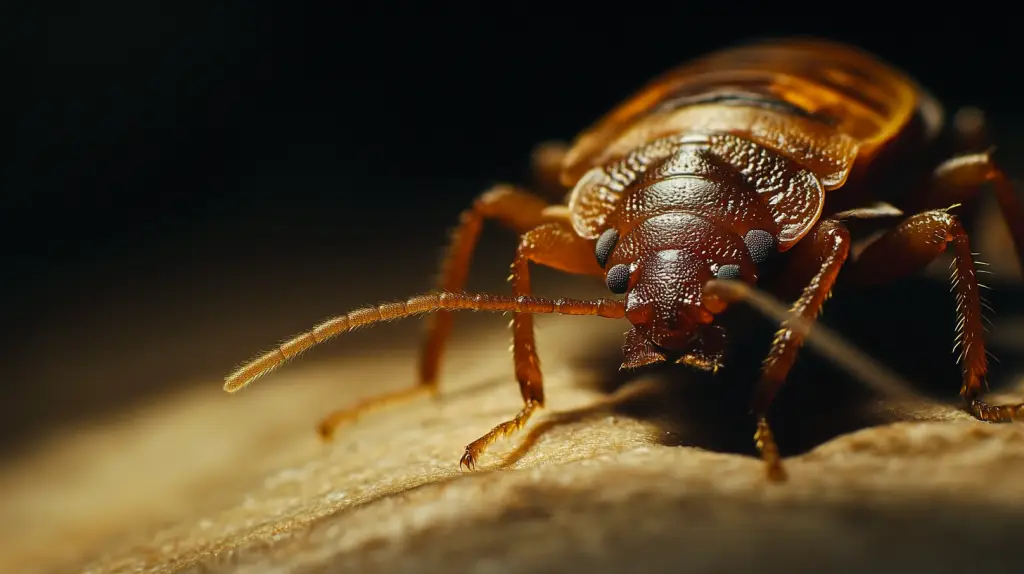
Table of Contents
Where do bed bugs bite? Imagine waking up one morning, feeling an irritating itch on your neck and arms. You glance in the mirror and notice small red welts that weren’t there the night before. Panic sets in as you wonder if you’ve been invaded by bed bugs. These pesky critters have a knack for targeting exposed skin while you’re blissfully unaware in dreamland. They often bite areas like your face, neck, and arms, leaving behind itchy, red marks that can be tough to ignore.
But how can you be sure it’s bed bugs and not something else? Bed bugs leave telltale signs—tiny blood spots on your sheets and small brown stains from their droppings. On lighter skin, their bites appear red, while on darker skin, they may look purple and be harder to spot. Knowing where bed bugs usually bite can save you a lot of sleepless nights and itchy mornings.
Key Takeaways
- Common Bite Areas: Bed bugs frequently bite exposed skin areas such as the face, neck, arms, hands, shoulders, back, and legs while you sleep.
- Identifying Bites: Bed bug bites typically appear as red, itchy welts in clusters or lines. On lighter skin, they appear red; on darker skin, they might look purple and are harder to detect.
- Misconceptions: Contrary to popular belief, bed bug bites are painless at the moment because bed bugs inject anesthetic. Also, bed bugs infest both clean and dirty environments.
- Nocturnal Behavior: Bed bugs are most active between 2 am and 5 am, but they can bite anytime if they detect a still host. They do not bite every night, which can make detection challenging.
- Prevention and Treatment: Regular inspection, cleaning, and reducing clutter can help prevent infestations. Washing bites with soap and water and using anti-itch creams or antihistamines can treat bite symptoms effectively.
Understanding Bed Bug Bites
You might wake up with red welts on your skin and wonder where do bed bugs usually bite. These pests bite humans while they sleep, leaving itchy marks on exposed skin.
Identifying Bed Bug Bites
Identifying bed bug bites isn’t straightforward. Bed bugs are crafty, often leaving bites that look like those from other insects. You’ll typically notice red, itchy welts or sores. These bites can be small and flat or raised, frequently appearing in clusters or lines. Common bite spots include your face, neck, arms, and hands—areas where skin is exposed while you sleep.
The American Academy of Dermatology Association notes that bed bug bites often result in flat red welts in zigzag lines. It’s challenging, though, as different people react differently to these bites, making a proper identification often tricky.
Common Misconceptions About Bed Bug Bites
A prevalent myth is that you can feel a bed bug biting you. In reality, bed bugs inject an anesthetic and anti-clotting agent while feeding, making the bite painless and unnoticeable initially. This means you won’t feel the bite until later when the welts start itching.
Another misconception is that bed bugs can only infest dirty homes. The truth is, bed bugs don’t discriminate; they’re found in both clean and dirty environments, drawn to warmth and carbon dioxide, not cleanliness. Eliminating these pests can be tough, so taking correct and prompt action matters.
Understanding where bed bugs usually bite and dispelling myths can help you take the right steps quickly.
Where Do Bed Bugs Usually Bite
Wondering where do bed bugs usually bite? Knowing the common areas can help you identify these pesky bites faster.
Common Body Areas Affected
Bed bugs tend to target areas of your body exposed during sleep. Let’s break down which parts are most prone to these irritating bites.
- Face: Waking up with itchy cheeks or forehead? Chances are bed bugs are to blame. They love biting the face, especially around the eyes.
- Neck: Your neck is another favorite spot for bed bugs. If you’re noticing red, itchy marks here, it’s likely from these nocturnal pests.
- Arms: Upper arms are frequent targets. You’ll find small red welts here if bed bugs have invaded your bed.
- Hands: They also go for the hands. Itchy, red bumps on your hands? Bed bugs may be the culprit.
- Shoulders: Bed bugs often bite the shoulders, particularly if you’re a side-sleeper and your shoulders are exposed.
- Back: Though less common, bed bugs do bite the back. Look for bites on exposed areas while you’re asleep.
- Legs: Bed bugs can bite your legs, especially around the knees and calves if they’re near your bed.
Identifying these common bite areas can make a huge difference in early detection and treatment, reducing the discomfort and hassle these bites inevitably bring.
When Do Bed Bugs Bite
Want to know when bed bugs are most likely to strike? Here’s what you need to know about their biting habits.
Understanding Their Active Periods
Bed bugs are nocturnal pests with peak activity between 2 am and 5 am. This is when you’re likely in your deepest sleep, making it easier for them to feed without disturbance. But, if they sense a host lying still, they’ll bite during the day too. Their attraction to warmth and carbon dioxide is what guides them to you. Imagine a tiny bloodhound sniffing out its target, but instead of a nose, it’s sensing your body heat and exhaled air.
Why does this matter? Knowing that bed bugs are primarily night feeders empowers you to take proactive measures. For instance, inspecting your bed before you sleep can help you catch any unwelcome guests early.
Bed bugs don’t bite every night, so the absence of bites doesn’t mean they’re gone. Like vampires taking a night off, they sometimes skip a meal. This irregular biting pattern can lull you into a false sense of security, giving them time to multiply.
- Nocturnal Feasting: Active mostly between 2 am and 5 am but can bite anytime if they sense a still host.
- Attraction Factors: Drawn to warmth and carbon dioxide.
- Irregular Biting: Don’t bite every night, making detection tricky.
Understanding when bed bugs bite helps in identifying infestations more accurately. With this knowledge, you can better protect yourself and take steps to combat these persistent pests.
Preventing and Treating Bed Bug Bites
Living with bed bugs is a nightmare, but you can prevent and treat their bites effectively. Let’s explore some strategies.
Prevention Strategies
- Inspect and Clean: Regularly inspect mattresses, headboards, and linens. Spotting signs early can save you from a full-blown infestation. Wash and heat-dry bedding and clothes often. These pests hate high temperatures.
- Reduce Clutter: A cluttered home offers hiding spots for bed bugs. Keep your surroundings tidy, reducing potential habitats. You’re not just cleaning; you’re making it harder for bed bugs to settle in.
- Seal Cracks and Crevices: Examine your home for any openings where pipes or wires enter. Bed bugs use these gaps to move around. Sealing these entry points is a simple yet barrier.
- Use Mattress and Box Spring Covers: Special covers designed for dust mite control are also against bed bugs. Seal the zippers with duct tape to trap any bed bugs already inside.
- Monitor and Inspect: Keep a vigilant eye on areas where bed bugs are commonly found, like beds and sofas. Regular inspections help catch any new intruders before they become a problem.
Treatment Options for Bites
- Immediate Care: Wash bed bug bites with soap and water to reduce the risk of infection. Applying an anti-itch cream or aloe vera gel can alleviate itching.
- Over-the-Counter Treatments: Use antihistamines if the itching persists. Hydrocortisone cream and calamine lotion are in reducing inflammation and irritation.
- Natural Remedies: Some people find relief using natural remedies like tea tree oil or baking soda paste. These can soothe the skin without the need for pharmaceuticals.
- When to Seek Medical Attention: If bites become swollen or don’t heal, consult a healthcare provider. Bed bug bites can get infected if scratched excessively.
Following these strategies can help you manage and prevent bed bug bites, ensuring your home remains a safe space.
Frequently Asked Questions (FAQs)
Will bed bugs bite me every night?
Bed bugs are nocturnal and typically feed at night. However, they do not bite every night. They only come out to feed when they need a meal, which can be a few nights apart or even several weeks.
How do you tell if a bite is from a bed bug?
Bed bug bites usually appear as raised bumps in a line or zigzag pattern. They often have a dark red center with lighter skin around them and can resemble pimple-like bumps or blisters.
How to get rid of bed bugs fast?
To quickly eliminate bed bugs, wash bedding and clothes in hot water, use a steamer on infested areas, and pack affected items in black bags to leave in direct sunlight for several hours.
Where do bed bugs hide on your body?
Bed bugs typically hide in your hairline and scalp, looking for exposed skin. Their bites can resemble those of other insects or skin conditions, making them difficult to identify.
Do bed bugs stay on your skin after a shower?
No, bed bugs do not stay on your skin after a shower. Washing with soap and water is sufficient to remove them from your body. Be sure to wash and thoroughly dry your clothes as well.

